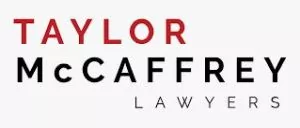Introduction
ChatGPT, a large language model developed by OpenAI, has the potential to revolutionize the way we communicate and access information.
For those who have never used ChatGPT, to put it very simply, essentially you can type a question into its search bar, and within seconds it will populate a detailed answer.
However, as the use of ChatGPT and other artificial intelligence becomes more widespread, it is important to consider the impact it may have on laws related to copyright, trademark, and intellectual property in Canada.
In this article, we will explore how ChatGPT may affect these laws and the potential implications for individuals and businesses in Canada.
Impact on Copyright Laws
ChatGPT's ability to generate original written content raises questions about the potential for copyright infringement. In Canada, copyright law is governed by the Copyright Act, which states that the creator of a work is the first owner of the copyright in that work.
In the case of ChatGPT, the question of who owns the copyright in the content generated by the model is not clear-cut. The model is trained on a vast amount of text from various sources, so it could be argued that the creators of the source material should have some claim to the copyright in the generated content. However, it could also be argued that the creators of the model, in this case, OpenAI, should have the copyright as they have created the program and wrote the code that generates the content.
Another issue related to copyright law is the potential for the generated content to infringe on the copyright of existing works. This could occur if ChatGPT generates content similar to existing copyrighted material. In Canada, copyright infringement occurs when a person reproduces, performs, publishes, or sells a copyrighted work without the permission of the copyright owner. In this case, arguably, the person using ChatGPT to generate content that infringes on existing copyrights could be held liable for infringement.
Impact on Trademark Laws
Trademark laws in Canada are governed by the Trademarks Act, which is designed to protect the use of trademarks in the marketplace. A trademark is a word, symbol, or design that is used to distinguish the goods or services of one person or organization from those of others.
ChatGPT's ability to generate names and logos raises questions about the potential for trademark infringement. If the model generates a name or logo similar to an existing trademark, it could be argued that this constitutes trademark infringement.
Impact on Intellectual Property
Intellectual property (IP) laws in Canada are designed to protect creations of the mind, such as inventions, literary and artistic works and symbols, names and images used in commerce. ChatGPT has the potential to impact all areas of IP, including patents, trademarks and copyrights.
For example, if the model generates an invention, it could be argued that the creators of the model, OpenAI, should be able to patent the invention. However, it could also be argued, that the source material used to train the model should be considered as prior art, meaning that the invention would not be considered new and therefore not patentable.
Conclusion
ChatGPT has the potential to revolutionize the way we communicate and access information. However, as the use of this technology becomes more widespread, it is important to consider the impact it may have on laws related to copyright, trademark, and intellectual property among many other areas in Canada. The questions raised by ChatGPT's ability to generate written content, names and logos, and inventions are complex and may require further clarification by Canadian courts. It will be very interesting to see how Courts in Canada and Manitoba respond to newly emerging artificial intelligence technologies.
The content of this article is intended to provide a general guide to the subject matter. Specialist advice should be sought about your specific circumstances.
We operate a free-to-view policy, asking only that you register in order to read all of our content. Please login or register to view the rest of this article.


